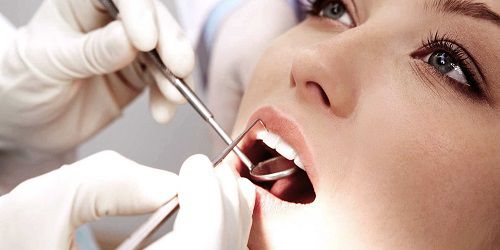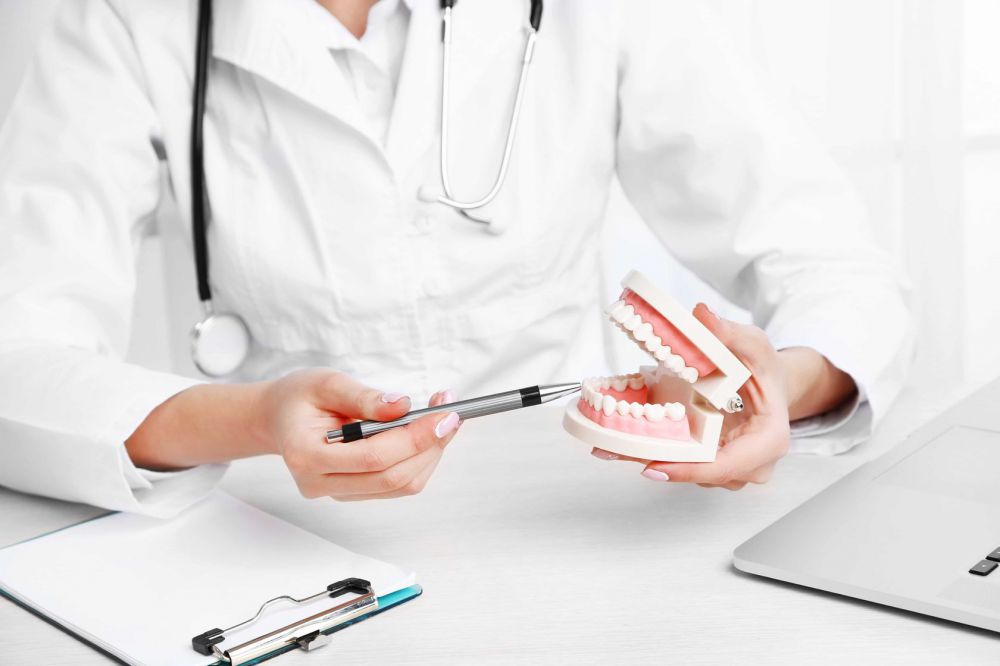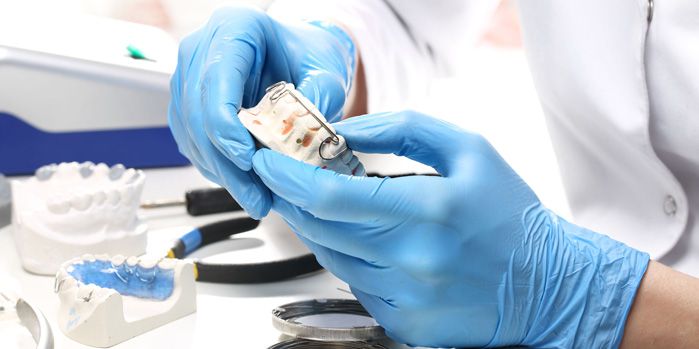Comprehensive dental consultation in Torrevieja

Consultation, reception
!!!important!!! A visit to the clinic. Please read this information for a more comfortable treatment. You can read more about treatment planning here. )
In our clinic we distinguish between the concepts of "Examination" and "Consultation".
"Examination" is a follow-up visit after the treatment in order to control the result. For example, an examination option is a preventive examination every six months or an examination 3-10 days after surgery.
There may also be an initial examination, when the doctor looked into the oral cavity and announced the approximate cost of treatment. Everything. At the same time, everything is fast, dry and stingy. And as a rule, the patient still has a lot of questions and misunderstandings. 10-15 minutes is enough for inspection.
"Consultation" is more than just an examination of the oral cavity. Here the doctor not only conducts an examination, but also performs diagnostics, tells everything in detail, answers questions. Usually, the consultation takes about 1 hour or even more, depending on what is happening in the person's oral cavity. And the patient comes out with a full understanding of what is happening to him, what to do with it and an accurate indication of financial investments.
Table of contents:
Acquaintance, conversation and inspection.
Diagnostics.
Informing about the patient's condition, drawing up and discussing a treatment plan
Informing about financial costs.
Answers to the patient's questions.
The decision on the need for repeated consultations.
Additionally, you can read the following articles on this topic:
Make an appointment for a consultation, examination or treatment.
Planning the time for the reception.
A visit to the clinic.
Moral and ethical aspects of the initial consultation and subsequent cooperation.
Acquaintance, conversation, inspection.
At this stage, we ask you to fill out a questionnaire where you need to indicate concomitant diseases. This is necessary for the correct choice of tactics and methods of treatment. For example, it should be taken into account that taking some medications for the heart contributes to the development of gum problems, the presence of an allergy to the antibiotic amoxicillin suggests the choice of another active substance, and fainting after anesthesia makes you think about changing the anesthetic, etc.
Then we find out complaints, ask leading questions and examine the oral cavity.
At the same stage, if necessary, we take photographs of the teeth in order to show and explain the situation to the patient, to document the condition before and after treatment, as well as to observe the result in the long term. For example, this stage is very important when it comes to the aesthetics of a smile or during orthodontic work.
Diagnostics.
All types of diagnostics are carried out directly in our clinic. Primary diagnostics is performed using various digital X-rays:
- targeted radiovisiographic images (a picture of one tooth);
- panoramic image (2D image of all teeth);
- computed tomography (3D volumetric image of all teeth).
If necessary, additional diagnostic methods are performed.
Most often, to consult on the condition of all teeth, it is enough to take a panoramic picture. It shows the general condition of the teeth and their roots, the condition of the bone tissue of the jaws and joints, and some other points.
If necessary, to clarify the details or to identify hidden caries, targeted radiovisigraphic images are taken.
And for a more thorough study, planning of implantation, complex surgical and orthopedic intervention, it is necessary to conduct a computed tomography of the jaws.
Informing the patient about the condition, drawing up and discussing a treatment plan.
During diagnostics and planning, we often involve the necessary specialists of the clinic - an orthopedist, surgeon, endodontist, orthodontist, each of whom is engaged in a narrowly focused specialty, reaching certain heights in it. And of course, for example, an implantologist is better versed in implants, and an orthodontist in bite correction.
And when we have the maximum amount of information about your condition, the doctor will show and tell you in detail about what is happening in your mouth and what to do about it. At this stage, it is fundamentally important for us that you delve into and understand what is being discussed, ask questions if something is not clear. Often at this stage, patients get scared. They refuse to listen. They want to know the cost right away, close their eyes and wake up with their teeth already cured. This fear is quite understandable and understandable. Many have experienced unpleasant sensations in the past, in childhood. But in order to achieve a positive long-term result, it is necessary to gather strength and decide on the step of beginning to correct the situation. Moreover, you have already made the first step - a visit to the clinic. Modern dentistry has stepped far ahead. Now there are effective and reliable technologies and drugs. So the better you can relax and trust, the more satisfied you will be with the result.
You will need to understand how the treatment will be carried out, what stages, what volumes, how long it will take and how much it will cost.
Almost always, complex dental treatment consists of several stages and is greatly stretched in time. For example, hygiene is carried out first, dental deposits are removed, and gum treatment is carried out. The next stage is therapeutic. Caries and canals are treated here. Then - surgical - removal of destroyed teeth that are not subject to preservation. Etc. Thus, treatment can last from one visit to several years in complex cases.
Sometimes it is necessary to re-diagnose and adjust the treatment plan. At the same time, the doctor often cannot calculate with pedantic accuracy the 100 percent need for some manipulations at all stages. But at the same time, we definitely discuss the possibility of their implementation and the sequence of stages. For example, it is planned to remove the upper teeth with large inflammatory foci on the roots. After healing, implants should be installed. At the time of tooth extraction, it is impossible to predict with certainty whether bone augmentation and gum plastic surgery in this area will be necessary in the future. But we definitely warn you that it may be necessary.
Informing about financial costs.
Of course, the issue of cost is one of the highest priorities. And usually it is discussed already at the first consultation. But in difficult cases, it may be necessary for the doctor to think for some time and plan the best option, take into account all the stages, manipulations. And appoint the patient for a second consultation to discuss and coordinate all the nuances.
Sometimes, in difficult cases, prices are announced for the next manipulations, and the subsequent ones are calculated approximately, and their cost may vary depending on the condition of the oral cavity at the time of their execution.
important! Usually, we announce all the costs "turnkey" at the moment of work.
For example, anesthesia + canal treatment + necessary X-rays + the use of a microscope + a seal = X euros. In terms of treatment, we briefly write all these stages: "endo - X euro".
Or: anesthesia + turning the tooth under the crown + scan (impression) + temporary plastic crown for the time of manufacture of a permanent crown + metal-free crown + its fixation = X euro. We briefly write in the treatment plan: "crown - X euro".
The cost of these manipulations remains for 6 months. This means that if you come in 6 months, the cost may already be different. Or even if you come in 5 months, but for example, the tooth on which it was necessary to install the crown has split and it needs to be removed, then the cost will be calculated anew.
But if a person's treatment is long-term, for example, stretched for a year, and a person regularly walks and performs all manipulations, then of course we leave all the costs at the designated level.
Answers to the patient's questions.
Usually, during the doctor's explanations, the patient gets all the answers. But sometimes there are still some questions. And it is very important that you ask and find out the points that are incomprehensible to you. Thus, you will have a complete picture of what is happening in your mouth, what treatment and why it is necessary to do. This is the main purpose of the initial consultation.
The decision on the need for repeated consultations.
Sometimes they are needed. If we are talking about complex rehabilitation, then the doctor calls the patient for a second consultation for additional discussion of the nuances, more deeply and carefully. Sometimes repeated consultations are needed before the start of the next stage for more thorough planning of the intervention.
Sometimes, in order to choose the best treatment tactics, it is necessary to take diagnostic casts, perform intraoral scanning, scan the face, study models, create wax modeling, make surgical templates, create a smile design or "Mock-Up". Such a thoughtful study of the situation allows you to rationally plan upcoming interventions and predict the result.
The more thorough the diagnostics and planning will be carried out,
the calmer the treatment process will be and the more predictable the result.
Make an appointment, come to the reception! We are waiting for you!
We invite residents of Torrevieja, La Mata, Elche, Murcia, Alicante and other cities of the Costa Blanca and the Valencia region to visit our clinic or call tel. CALL: +(34) 638 893 141 Reception is by appointment.
Contact Information:
| Torrevieja, Pasaje Pais Vasco, edificio 1 local 4 | |
| +(34) 638 893 141 | |
| +(34) 638 893 141 | |
| apdenta@gmail.com | |
| Working hours: Mon - Fri: from 10:00 to 20:00 |



